Kindergarten
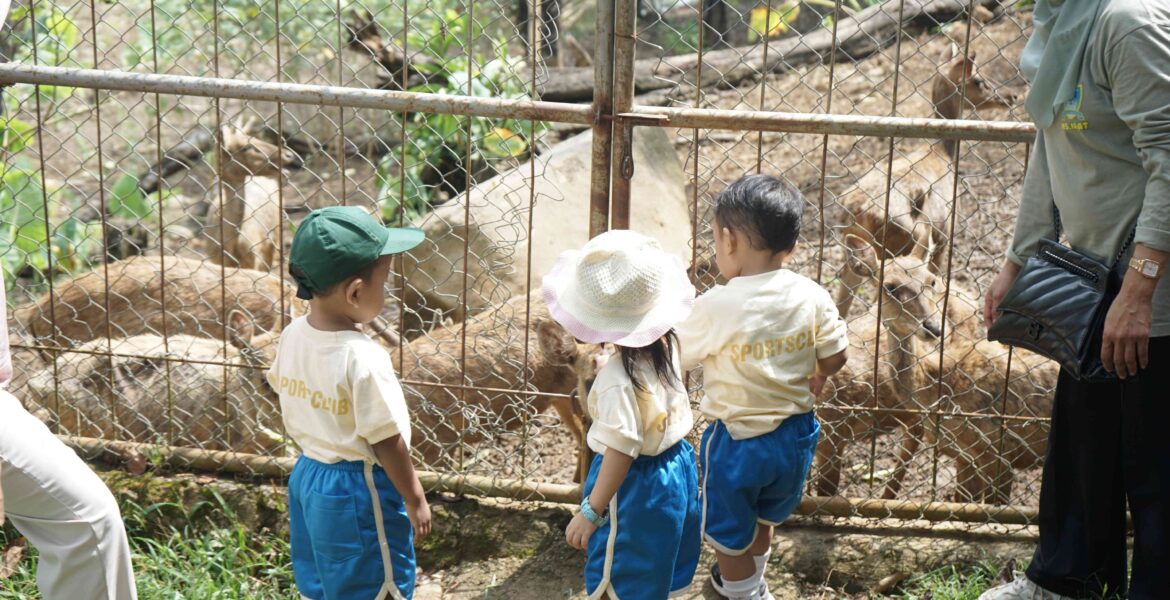
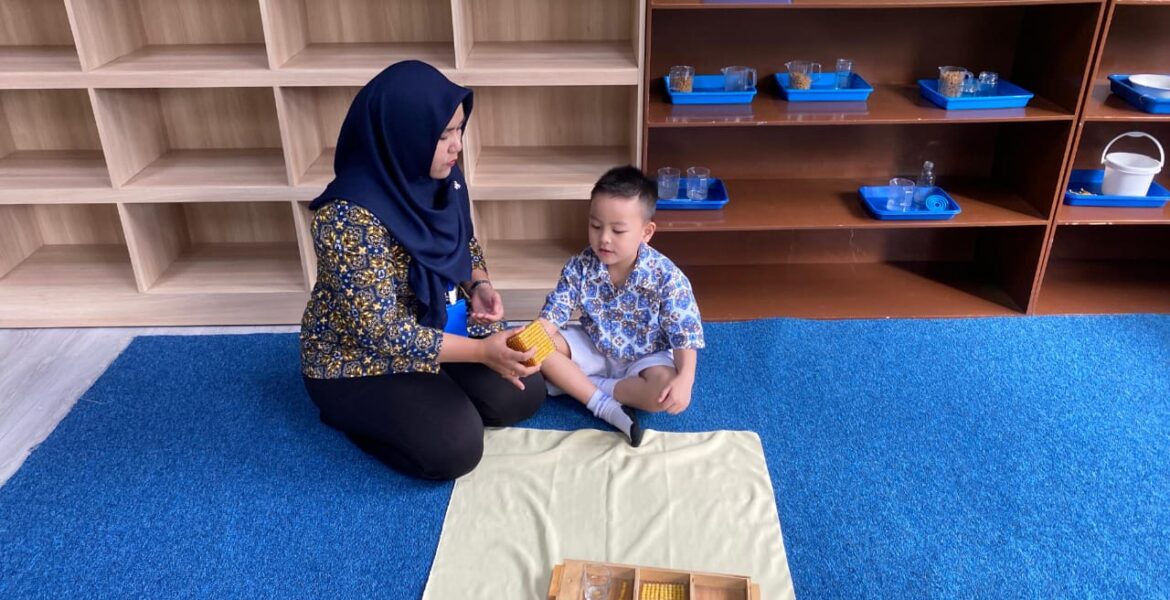
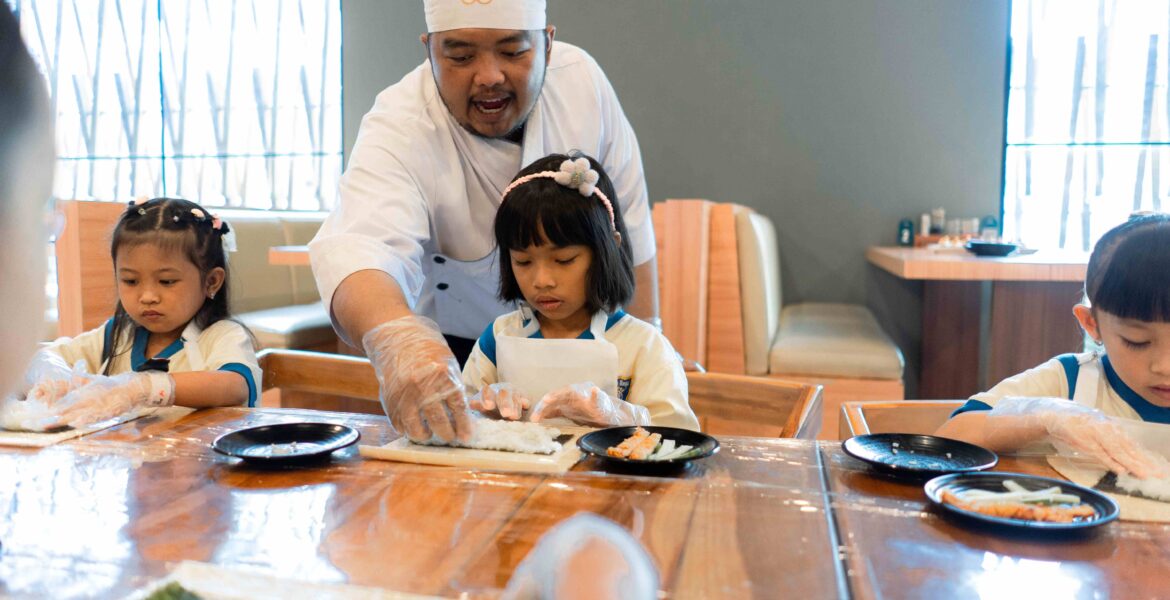
Each child is valued as a unique individual.
At T-NTK Darma Bangsa, we believe that every child is a unique individual, with different potentials, interests, and ways of learning. Therefore, we create a warm, inclusive, and responsive learning environment that caters to the needs of each child.
We value every small step in their developmental process. Children are given the space to express themselves, explore the world around them, and build self-confidence through enjoyable and meaningful learning experiences.
With this approach, we are committed to building a strong foundation of character and lifelong learning—starting with the recognition that every child deserves to grow into their true self, in a supportive and loving environment.
Montessori Class
T-NTK Darma Bangsa has Montessori classes, which is a method developed by Dr. Maria Montessori. The Montessori class provides five areas of exploration as a means of developing independence, self-confidence, and lifelong learning abilities in children, namely:
Practical Life Skills
This area provides opportunities for children to learn everyday practical skills such as cleaning, pouring, and self-care. These activities help children develop independence, coordination, and problem-solving skills.
Sensorial
In this area, children explore the world through their senses. Materials such as different textures, colors, shapes, sounds, and weights of objects are used to stimulate children’s sensory development
Language
This area helps children develop their language, reading, and writing skills. Through various activities such as word games, reading books, and writing exercises, children learn to communicate and express themselves.
Mathematics
This area introduces basic mathematical concepts to children through the manipulation of materials such as beads, rods, and numbers. These activities help children understand mathematical concepts concretely and develop logical thinking skills.
Culture
This area introduces children to geography, history, art, and cultures from various parts of the world. Through pictures, maps, and various cultural objects, children learn about the world around them and develop an understanding of diversity.
English-Speaking Environment: Fostering Bilingual Skills from an Early Age
At T-NTK Darma Bangsa, we create an environment that uses English in daily communication to introduce children to the global language from an early age. Through classroom interactions, songs, storytelling, and various enjoyable activities, children become accustomed to hearing and using English naturally.
This approach supports their English language development without neglecting their mother tongue, which is Bahasa Indonesia. We believe that by introducing both languages in a balanced way, children will grow into confident bilingual speakers who are ready to face the challenges of the global world, while still appreciating their cultural identity.
With the guidance of warm and supportive teachers, children feel safe and comfortable to explore and express themselves in both languages. This environment is not only effective in building language skills but is also fun and centered on the needs of the child.
Book-Based Projects: Cultivating a Love for Reading from an Early Age
As we know, Indonesia still faces challenges in terms of literacy. Literacy is not just the ability to read and count, but also includes the ability to understand concepts, meanings, and messages from what is read. At T-NTK Darma Bangsa, we believe that cultivating a love for books from an early age is an important step in building a strong literacy foundation.
To this end, we have developed Book-Based Projects as a core part of learning activities. Teachers and students together choose a storybook they like, read it together, and then design various meaningful activities inspired by the story. These activities can include simple science experiments, art, role-playing, and even exploration of the values within the story.
With this approach, learning becomes more enjoyable, engaging, and memorable—while also strengthening children’s critical thinking, communication, and empathy skills.

Psychologist Services: Supporting Children’s Holistic Growth and Development
One of the distinctive advantages at T-NTK Darma Bangsa is the availability of psychologist services for children and families. We believe that good education not only focuses on academic aspects but also on the emotional well-being and overall development of the child.
Through these services, we support families who want to ensure their child’s growth and development is optimal. We also routinely conduct Early Childhood Development Screening (DDTK) to provide important information to parents about their child’s development, in terms of cognitive, socio-emotional, language, and motor skills.
With a professional and empathetic approach, these services help parents recognize their child’s developmental progress early on and design appropriate support, so that the child’s growth and development can be maximized.
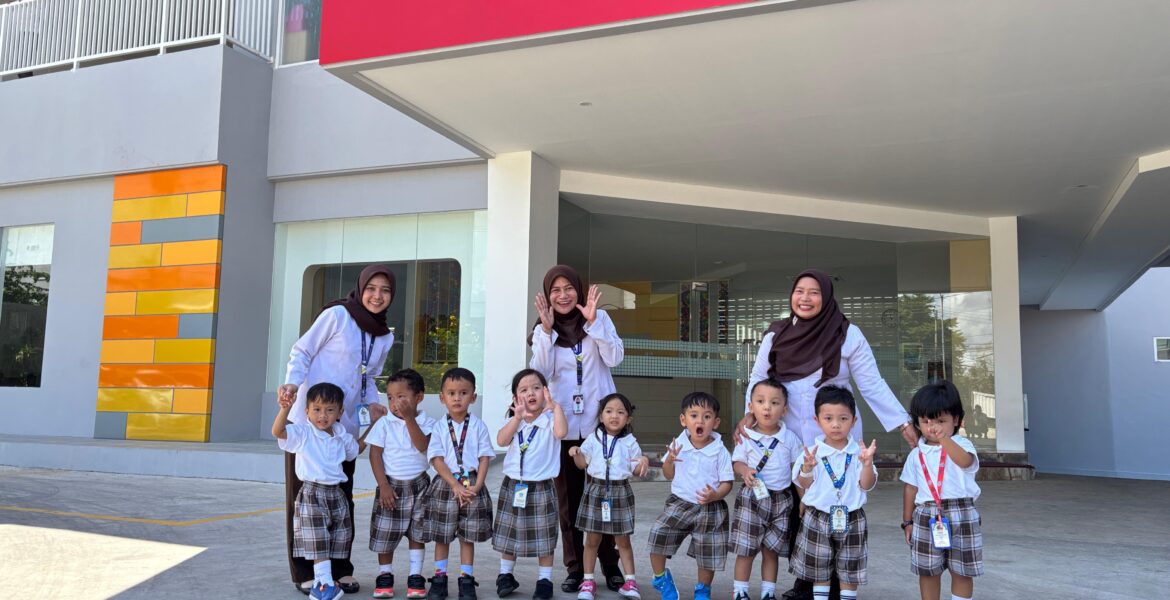
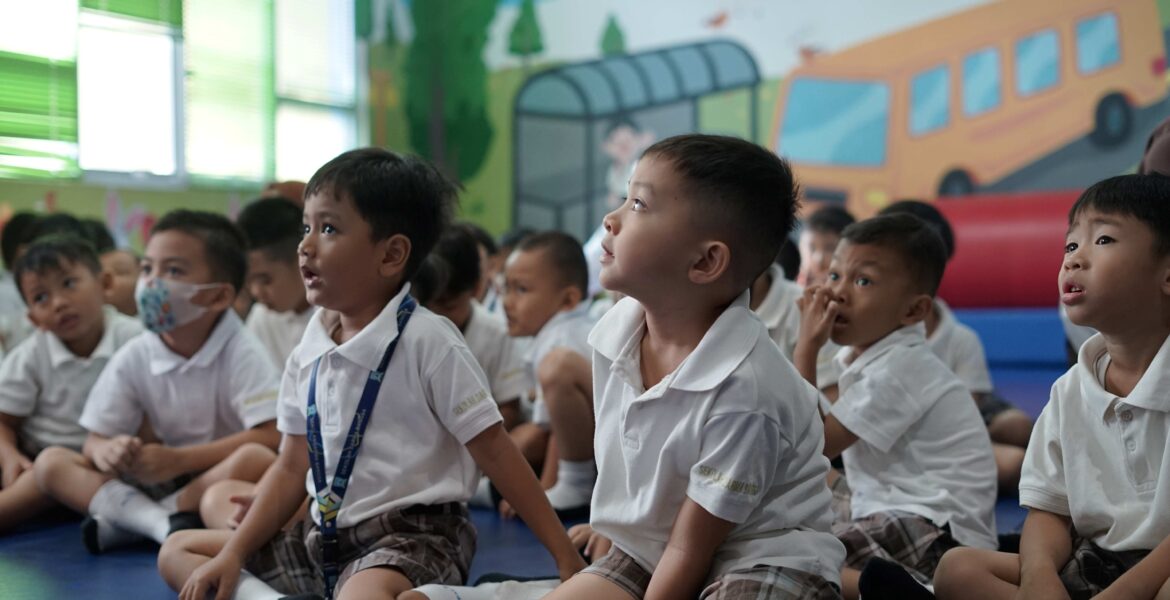
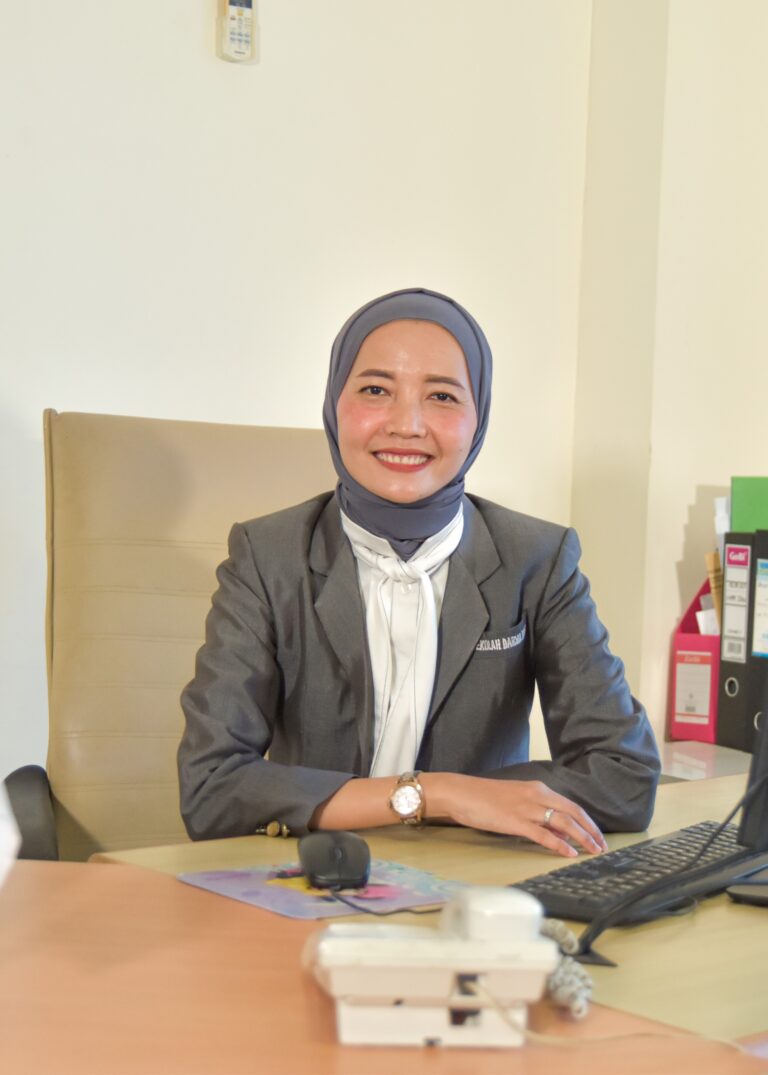
Principal Of Preschool and Kindergarten
Usnul Umi Miftahurrohmah, S.Pd. M.Pd
Degree
- S1 Pendidikan Bahasa Inggris Universitas Lampung
- S2 Administrasi Pendidikan Unversitas Lampung
Experience
- NTK Vice Principal ( 2010 – 2012 )
- instruktur Nasional Kemdikbud (2015 – 2018)
- Australian Awards Fellowship Awardee (2017)
- T-NTK Principal ( 2012 – present)
FAQ.
In the Early Childhood Education program at SDB (T-NTK Darma Bangsa), we implement varied and enjoyable teaching methods specifically designed to support the holistic growth and development of children. The learning methods we use include:
- Role Play: Children are invited to explore various roles and real-life situations through role-playing. This helps them develop imagination, empathy, social skills, and language abilities.
- Storytelling: Teachers read and tell inspiring stories that stimulate thinking skills, enrich vocabulary, and foster children’s love for literacy. Storytelling also serves as a medium for conveying moral values and contextual learning.
- School Trip (Educational Visits): Children are taken out of the school environment to observe and experience the real world firsthand. This activity broadens their horizons and makes learning more vivid and meaningful.
- Project-Based Learning: Children are involved in collaborative projects that require them to design, explore, and present their work. This method fosters a sense of responsibility, teamwork, and problem-solving skills from an early age.
- Book-Based Project: Storybooks become the starting point of the learning process. Children read books with their teachers and then engage in a series of activities inspired by the story—ranging from art and experiments to role-playing—which strengthens their understanding and engagement.
- Scientific Learning: Children are trained to think like little scientists—observing, asking questions, experimenting, and drawing conclusions from various phenomena around them. This fosters curiosity, logical thinking skills, and a love for the learning process.
At SDB (T-NTK Darma Bangsa), we believe that collaboration between school and parents is a crucial key in supporting children’s optimal growth and development. Therefore, parents not only act as external supporters but are also directly involved in various programs through the BOP (Board of Parents), which is part of the school’s organizational structure.
Through this BOP platform, parents collaborate with the school in designing and implementing classroom and school programs. This involvement takes various forms of activities, such as becoming guest speakers, reading books or storytelling in class, and participating in charity events, Parents’ Day, and other class projects.
These activities not only strengthen the relationship between parents and children but also build a sense of belonging towards the educational process at school. This collaboration creates a warmer, more inclusive, and meaningful learning environment for the entire school community.
T-NTK SDB ensures a balance between learning and play activities in the Early Childhood Education program by implementing a structured yet flexible play-based learning approach. In practice, learning activities are designed to be enjoyable and appropriate for the child’s developmental stage, incorporating elements of play into the learning process through activities such as role-playing, exploration of natural materials, art, music, and physical activities. Teachers integrate learning objectives into play activities, so children still achieve the targeted competencies while enjoying the process.
In addition, the children’s daily schedule is balanced between time for more structured activities within the learning modules and supervised free play, where children can choose activities according to their interests. This approach not only supports cognitive development but also encourages the development of religious and moral skills, physical motor skills, socio-emotional skills, language, and art.
